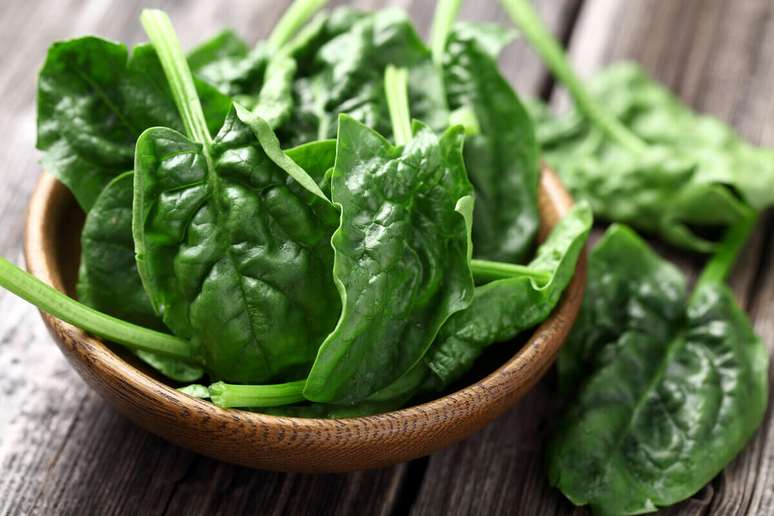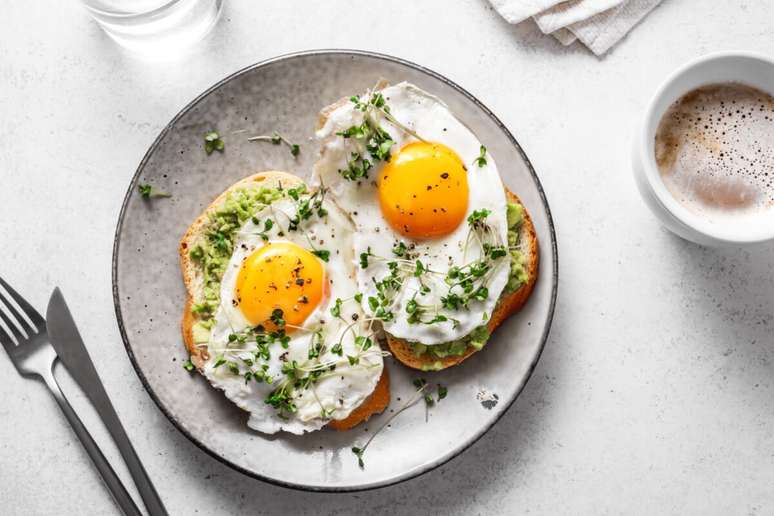Make your diet healthier with these animal and plant-based options
The B complex vitamins play a key role in our body, providing support to cellular metabolism, energy production and proper functioning of the nervous system. These vitamins are essential for overall health and well-being, and one effective way to obtain them is through a balanced, nutrient-rich diet.
html[data-range=”xlarge”] figure image img.img-782c6e3df234249567d0dab08776db53n0djr5sz { width: 774px; height: 516px; }HTML[data-range=”large”] figure image img.img-782c6e3df234249567d0dab08776db53n0djr5sz { width: 548px; height: 365px; }HTML[data-range=”small”] image figure img.img-782c6e3df234249567d0dab08776db53n0djr5sz, html[data-range=”medium”] figure image img.img-782c6e3df234249567d0dab08776db53n0djr5sz { width: 564px; height: 376px; }HTML[data-range=”small”] .article__image-embed, html[data-range=”medium”] .article__image-embed { width: 564px; margin: auto 0 30px; }
Below, see 10 animal and plant foods rich in vitamins B1, B2, B3, B5, B6, B9 (folic acid) and B12.
Animal options
1. Eggs
Egg yolks are a concentrated source of several B vitamins, including vitamin B12, riboflavin, niacin and folic acid. “In eggs we can find all the essential amino acids that our body needs to carry out vital functions, such as: immunity, nutrient transport, hormone production and tissue production. The vitamins and minerals present also have regulatory and balance in the body,” highlights nutritionist Simone Abreu.
2. Liver
Liver, especially beef liver, is an excellent source of several B vitamins, including vitamin B12, thiamin (B1), riboflavin (B2), niacin (B3), pantothenic acid (B5), pyridoxine ( B6) and folic acid (B9). .
3. Pisces
Many the fish are rich Vitamins of the B complex, especially vitamin B12. Salmon, trout, tuna, sardines and mackerel are good options. In addition, fish also provides other B vitamins such as niacin and pyridoxine.
4. Red meat
Beef is an excellent source of B vitamins, including vitamin B12, niacin, riboflavin and pyridoxine. These vitamins play a vital role in the body’s metabolism, energy production, and overall health. When choosing beef, opt for lean cuts for a healthier option while ensuring you get adequate intake of these essential vitamins.
5. Milk and derivatives
Milk, cheese and yoghurt are foods that offer a variety of B vitamins, such as riboflavin (B2), vitamin B12 and pantothenic acid (B5).
Furthermore, the consumption of some yogurts and fermented milks help restore the beneficial bacteria of the intestinal flora, called probiotics. “These microorganisms help strengthen immunity. A healthy intestine is able to separate what is not good for you and to absorb the main micronutrients, such as vitamins,” explains nutritionist Daniela de Araújo Medeiros.

plant-based options
6. Green leafy vegetables
Spinach, kale, chard and other leafy greens green leaves they are rich in folate, which is a natural form of folic acid (vitamin B9). These vegetables also contain other B vitamins, such as riboflavin (B2) and niacin (B3).
7. Nutritional yeast
Nutritional yeast is a dietary supplement derived from inactive yeast and is an excellent source of several B vitamins, such as thiamine (B1), riboflavin (B2), niacin (B3), pantothenic acid (B5), pyridoxine (B6) and vitamin B12 (in some fortified varieties).
8. Legumes
Lentils, beans, chickpeas, soybeans, peas, and other legumes are sources of several B vitamins, such as thiamin (B1), riboflavin (B2), and niacin (B3). Plus, they’re also a good source of plant-based protein.
“Soy is considered a functional food, as it brings many health benefits because it is rich in vitamin A, B, C, D, E complexes, polyunsaturated fatty acids, such as omega 3 and 6, and minerals such as iron, sulfur, magnesium, copper, phosphorus, potassium, manganese and high in protein”, lists Sandra da Silva Maria, functional nutritionist.
9. Whole grains
Whole grains, such as brown rice, oats, whole wheat and quinoa, are convenient ingredients to consume daily and contain the major B vitamins. Choose whole grains over refined grains for more nutrients.
In general, the cereals they also help reduce appetite and control blood sugar. “Because they are very fibrous foods, they slow down the absorption of a meal, which is good, since they reduce appetite and the release of hormones that make us fat,” completes nutritionist Fernando Castro.
10. Seeds and nuts
Sunflower seeds, flax seeds, chia seeds, almonds and chestnuts they are versatile characters to incorporate into recipes and enrich the diet with the vitamins thiamine (B1), riboflavin (B2) and niacin (B3). They also provide healthy fats and other important nutrients.
Nutritionist Natália Colombo explains that oilseeds should be part of a eat healthybecause they are made of good fats. “They regulate cholesterol levels, reducing LDL (bad cholesterol) and increasing HDL (good cholesterol), preventing arteriosclerosis and hypertension, contributing to a healthier heart and brain,” he explains.
Source: Terra
Ben Stock is a lifestyle journalist and author at Gossipify. He writes about topics such as health, wellness, travel, food and home decor. He provides practical advice and inspiration to improve well-being, keeps readers up to date with latest lifestyle news and trends, known for his engaging writing style, in-depth analysis and unique perspectives.









